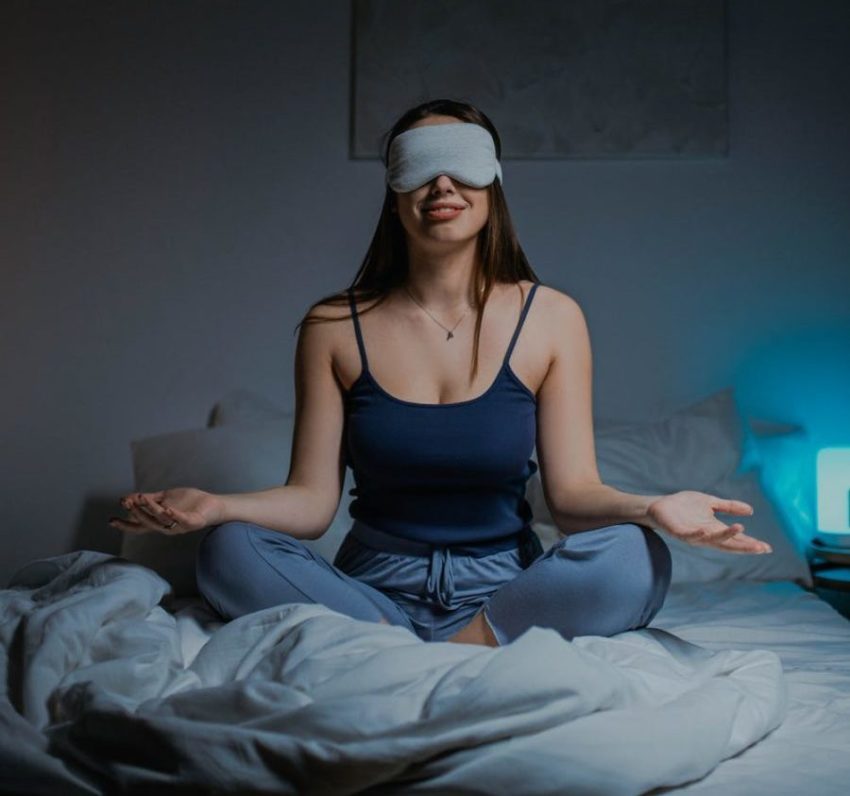The High Schooler’s Guide to Getting Good Sleep

By Lisa L. Lewis
Between schoolwork, extracurriculars, and time with friends, it can feel impossible to carve out enough time for sleep. But being well rested is one of the best ways to manage everything you do, and it’s even more important when you’re feeling stressed and overwhelmed.
Here are eight ways to get enough sleep so you feel—and function at—your best. Pick three or four to try, and then pay attention to how your sleep and mood changes. Taking a few notes on your phone or in a notebook will help you notice any positive changes that come from sleeping better.
Aim for Eight to 10 Hours Every Night
It can be hard to get eight to 10 hours a night when you have so much going on, but it’s the amount that’s been shown to help you function best across the board. Being well rested enhances your mood, keeps your brain sharp, helps with focus, improves your performance, boosts your immunity, and even makes you more attractive. On the flip side, when you’re sleep-deprived, your concentration suffers, you have a shorter emotional fuse, and you’re more likely to make impulsive decisions or get sick.
Give Yourself a Bedtime
Since you probably don’t have much control over what time you have to get up in the morning, control what you can: bedtime. Do the math based on the time you have to wake up so you get eight to 10 hours of sleep. Use that deadline to help you stop scrolling, say goodbye to the group chat, and power down your screen
Wind Down
Our brains thrive on routine. Doing the same actions every night before bed prepares your brain for rest, which will make it easier to relax and fall asleep. Pick some enjoyable nonscreen ways to wind down: reading a book (ideally not on a device), listening to a podcast or soothing playlist, or taking a warm bath. When you do one of these every night, your brain and body know it’s time to slide into sleep mode.
Make Tech Helpful
Being on social media, watching a TV show, or playing a video game may be part of how you unwind, but it’s easy to spend more time on tech than you intended to. If you struggle with this, set a timer on your phone for when it’s time to put away your screen or use the Bedtime app or other controls on your phone that help you shut down at the same time every night.
Make Your Room a Sleep Zone
Sleep science shows that a dark, quiet room helps you fall—and stay—asleep. Blackout curtains can be a big help, especially during times of the year when the sun sets later. When it’s time to sleep, turn off any unnecessary lights, and, if you rely on your phone as an alarm clock, have it dim at a set time. Finally, aim to keep your bedroom cool. The ideal temperature is between 65 and 72 degrees, says pediatric sleep psychologist Lisa Meltzer, Ph.D.
Minimize Distractions
The fewer tech devices in your room at night, the better. Consider charging your phone in another room, if possible. At a minimum, turn off notifications so you’re not roused by incoming messages. If you share a room or have outside noise that seeps in, try ear plugs or playing some white noise to mask the sounds.
Skip Afternoon Caffeine
It’s tempting to turn to caffeine to stay alert during the day, but about half of it is still in your system five to seven hours after you drink it. Drinking it late in the day can make it harder to fall asleep. Caffeine adds up and can be found in energy drinks, soda, coffee, chocolate, tea, and some medications.
Plan Ahead for Busy Times
Sometimes you know you’re going to have a jam-packed week or a couple late nights. Take an afternoon nap if you can squeeze it in, Meltzer says, but keep it to 45 minutes or less so you’re not wide awake when bedtime rolls around.
And finally, remember that eight to 10 hours is the goal on most nights. Don’t stress when life makes it impossible to achieve on any given night. “A night or two of not getting enough sleep is OK,” Meltzer says. Just do what you can to get back on track.
If you’ve made some of these changes and still can’t sleep, check out What to Do When You Can’t Sleep





